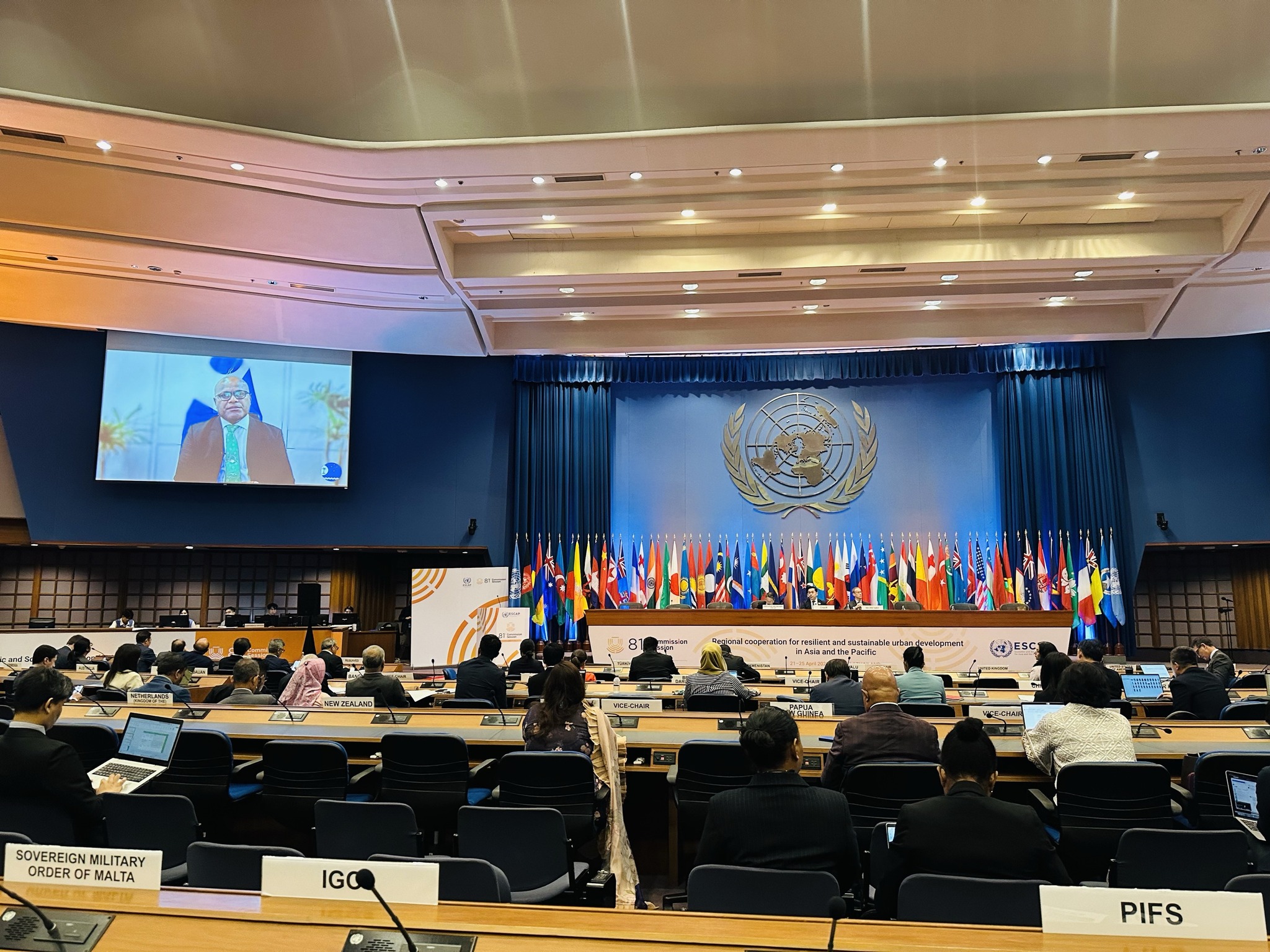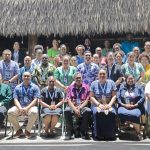The Pacific Islands Forum has urged global and regional partners to align more closely with Pacific-led priorities as the region faces mounting challenges, from climate change to transnational crime and shifting aid dynamics.
Speaking virtually at the 81st Session of the UN Economic and Social Commission for Asia and the Pacific (ESCAP), Forum Deputy Secretary General Esala Nayasi delivered a direct message on the Pacific’s development needs and strategic direction.
“Our global context is rapidly evolving. At the regional level, as we work to rebuild our economies following the COVID-19 pandemic, we now face global trade tensions,” Nayasi said.
He pointed to shrinking development assistance amid growing demand for resources to tackle the climate crisis, and flagged an increase in transnational crime activity impacting Pacific communities.
“These challenges sit alongside an increased geopolitical focus on our Blue Pacific.”
Despite the pressures, Nayasi said the region remains committed to its long-term vision.
“In the face of such uncertainty, our policy priorities for our region remains grounded in our long-term plan for our people, the 2050 Strategy for the Blue Pacific Continent. Our vision as articulated by our Leaders for ‘a resilient Pacific region of peace, harmony, security, social inclusion and prosperity, that ensures all Pacific peoples can lead free, healthy and productive lives’ remains our North Star amongst this uncertainty.”
He praised UNESCAP’s support in establishing the Pacific Resilience Facility(PRF), a Pacific-designed disaster preparedness fund now showcased as a regional solution for climate adaptation.
“It will provide timely and predictable funding for community-led climate adaptation and disaster preparedness projects across the region.”
Nayasi also highlighted progress on the Pacific Regional Framework on Climate Mobility, a joint initiative led by Fiji and Tuvalu, which addresses climate-induced migration and relocation.
The Pacific Roadmap for Economic Development (PRED), recently endorsed by Forum Economic Ministers, was another key priority mentioned.
“We are now seeking development partners to align their support with the implementation of PRED, in recognition of its critical role in advancing a sustainable, inclusive, and resilient Blue Pacific economy.”
With the 2030 Agenda deadline looming, Nayasi called for renewed global momentum.
“With five years remaining, we must both accelerate progress to achieve our targets, while also looking beyond 2030 to consider if our development instruments, and approaches are sufficient to meet the challenges of our future.”
He welcomed the UN General Assembly’s endorsement of the Multidimensional Vulnerability Index (MVI), calling it a critical step in recognising the Pacific’s structural vulnerabilities.
Looking ahead, Nayasi confirmed that Forum Leaders will consider an “Ocean of Peace” declaration in September, and reiterated the need for aligned and effective partnerships.
“Our Pacific policy priorities for 2030, set the foundations for the transformative change we seek in our 2050 vision. We have embarked on work to strengthen our regional architecture, deliver impact through regional collective actions and deepen Pacific regionalism.
“In parallel, we are progressing policy priorities that are key to sustainable development outcomes. This includes consultations on an ocean of peace declaration which will be considered by our leaders at their meeting in September.
“To achieve our 2050 vision, partnerships that are strategically aligned to our priorities are critical. In this regard, I look forward to continued partnerships as intended through this convening here today and welcome regional and subregional cooperation we have with ASEAN and the Commonwealth Secretariat,” said Nayasi.













